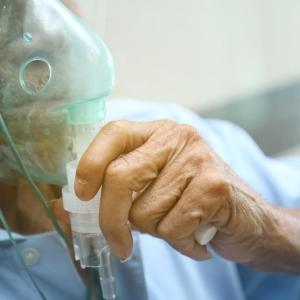The use of bisoprolol does not appear to yield reductions in the number of self-reported chronic obstructive pulmonary disease (COPD) exacerbations requiring treatment with oral corticosteroids, antibiotics, or both, as shown in the placebo-controlled Bisoprolol in COPD Study (BICS).
BICS enrolled 515 COPD patients (mean age 68 years, 53 percent male, mean FEV1 50.1 percent) who were at high risk of exacerbations, defined as at least moderate airflow obstruction on spirometry and at least two COPD exacerbations treated with oral corticosteroids, antibiotics, or both in the prior 12 months.
The patients were randomly assigned to receive bisoprolol (n=259) or placebo (n=256) for 52 weeks. Bisoprolol was initiated at 1.25 mg once daily and titrated as tolerated to a maximum dose of 5 mg/d over 4 titration assessments during approximately 7 weeks.
The primary outcome of the number of patient-reported COPD exacerbations treated with oral corticosteroids, antibiotics, or both during the 1-year treatment period was 526 in the bisoprolol group and 513 in the placebo group. The corresponding mean exacerbation rates were 2.03 and 2.01 per year, respectively.
The difference in the primary outcome was not significant, with the adjusted incidence rate ratio being 0.97 (95 percent confidence interval [CI], 0.84–1.13; p=0.72).
Safety outcomes were also comparable, with serious adverse events occurring in 14.5 percent of patients in the bisoprolol group and in 14.3 percent of those in the placebo group (relative risk, 1.01, 95 percent CI, 0.62–1.66; p=0.96).

